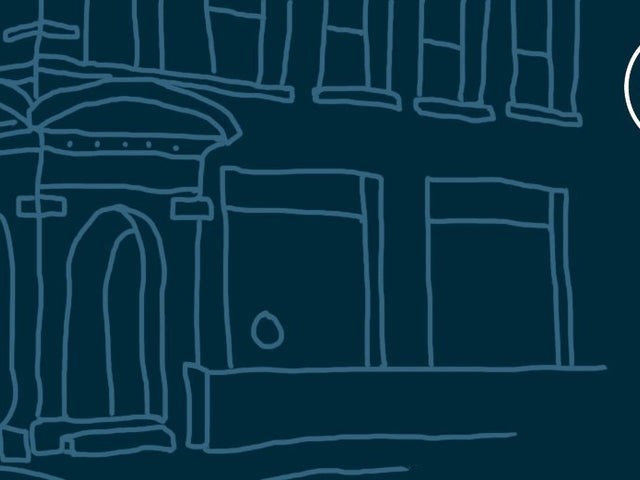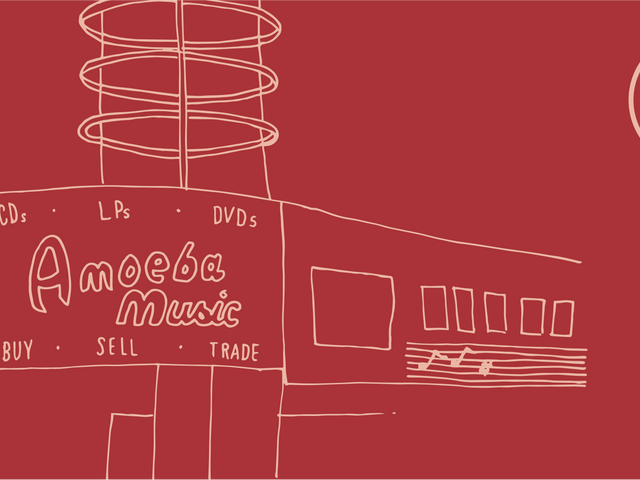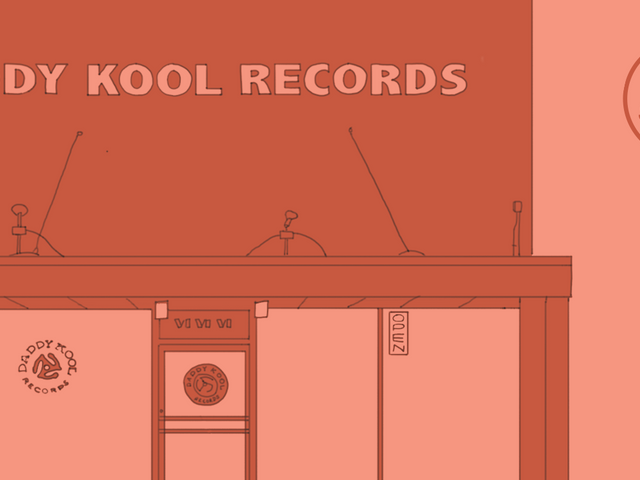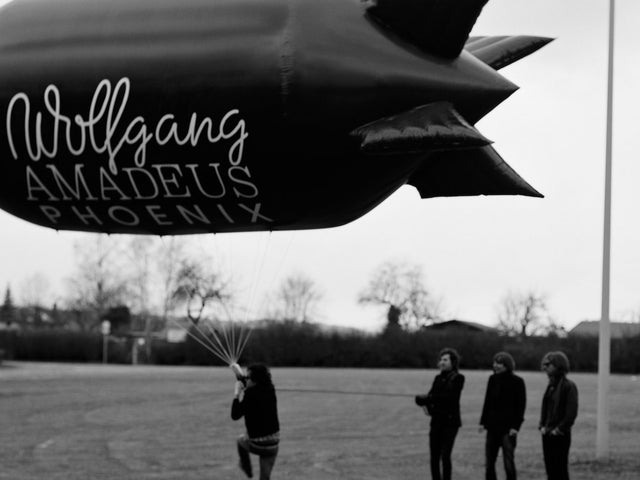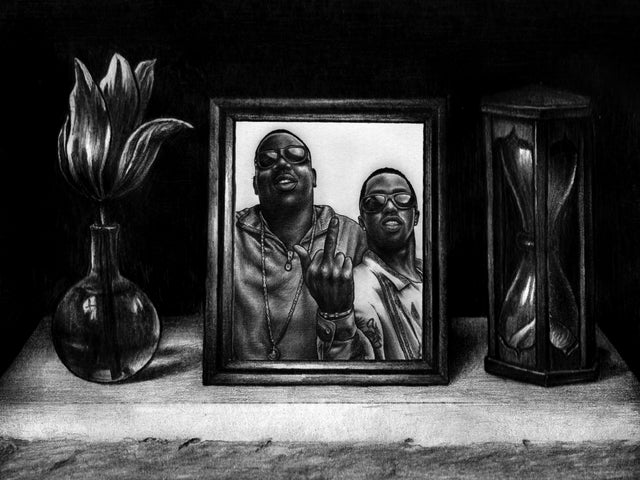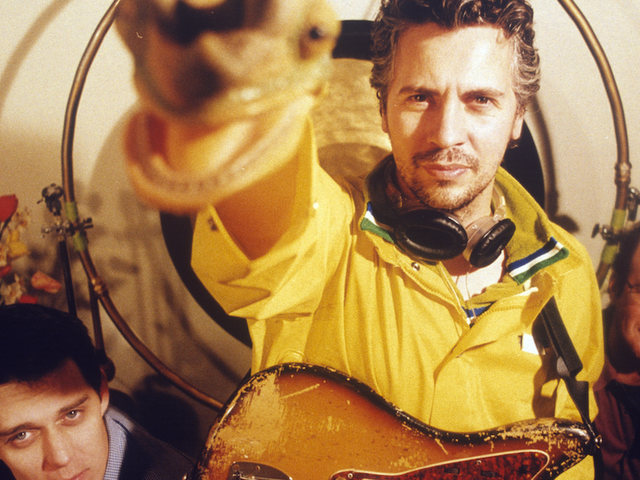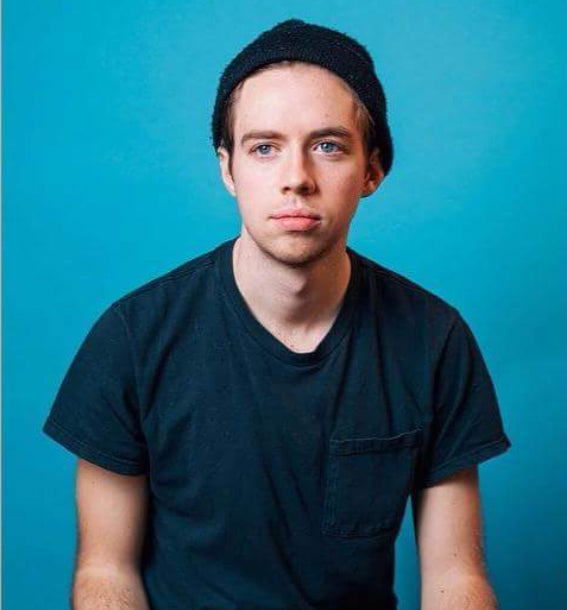„I 50 migliori negozi di dischi in America“ è una serie di saggi in cui cerchiamo di trovare il migliore negozio di dischi in ogni stato. Questi non sono necessariamente i negozi di dischi con i migliori prezzi o la selezione più ampia; puoi usare Yelp per quello. Ogni negozio di dischi in evidenza ha una storia che va oltre ciò che c'è sugli scaffali; questi negozi hanno una storia, favoriscono un senso di comunità e significano qualcosa per le persone che li frequentano.
It was a cold afternoon (probably) in the Rocky Mountain foothills, the sun already scrunching it’s way behind the mountains at a mere 3 p.m. (roughly). There was most definitely a hand-me-down mid-sized sedan, a CD changer full of burned Choking Victim and Punk and Disorderly compilations (maybe), packed with one- or two-too many wide-eyed, ignorant, arrogant (definitely) children. Cigarette smoke that was (definitely) improperly inhaled, exhaled through a small crack in a passenger window, big enough to let the stench out but small enough to keep the warmth in. Freshly used plastic utensils from the dollar-an-item Chinese food hot bar lined the dirty floor as we (most likely) made our way to the best record store in the state: The Leechpit.
The truth is, I can’t recall the first time I set foot into The Leechpit. I don’t know if the situation described happened in one day, over the course of many years or if it’s a romantic story, made up to encapsulate the feelings of that era of my life. I’m OK with the latter being the case.
Situated in the sleepy little downtown of Colorado Springs, Colorado, sits The Leechpit. To call The Leechpit a “record store” would be a grave understatement. Lining the walls sat vintage clothes, like a shirt from a Denver marathon from 1978 or an old Dischord Records hoodie. In a glass case sat a dizzying array of old toys. There were baskets of Hobo nickels, pins, pins, pins, pins, patches, pins and patches. There were old cassettes and VHS tapes, like a copy of The Year Punk Broke. And of course, there were records.

The original Leechpit, the one I remember the most, was in the first floor of an old home in a small collegiate area of town. As you walked up the steps of the porch, you were met with a dollar bin, with old shirts for free or cheap. Opening the door of the house that could belong to your great grandmother, you were met with a temple of cool. Something you’ve probably never heard before played over the speakers. Countercultural relics lined the walls and clothing racks of what would be the living room or dining room. Punk shirts, vintage shirts and the occasional polo with the signature Leechpit logo screen printed in the pocket crammed in the tiny space. Behind the counter sat Adam Leech, owner, and clearly the life force behind the place. A quick nod or “hey” was all you really got. He was a busy guy, this place was full of cool junk. One could spend hours sifting through all the pins, patches and toys.
Then there were the records. In order to understand the impact of a cool record store on youth, there needs to be some context. I didn’t know anything about anything “hip” back then. Blogs hadn’t really become an arbiter of cool quite yet, in the way that they had such an impact in the late 2000s. Facebook was still a website that only my older sister, a college student, could use. My music taste came from word of mouth from punk friends, mix CDs and, well, MySpace. I scanned the site late into the night, discovering bands made up of kids my age that broke up 30 years prior after putting out one or two EPs, and believed that me and my small group of friends were the only ones who really cared about this garbage. And we had good reason to believe that. Colorado Springs does not have the reputation for being a progressive haven. Military bases and mega churches line I-25. It’s a far drive from the historically liberal-yet-yuppie Boulder and the only major city, Denver. To put simply, if you were a kid into “weird” or alternative stuff, there really wasn’t much for you. To walk into The Leechpit and see Leech's collection of records was a deep breath of musty, unfamiliar, yet cool air. For the first time in my life, I saw physical copies of records I thought only I cared about. I scanned bins and bins of records I had never heard seen or heard of, but I wanted more. I wanted to absorb everything, look like these people, understand their politics. I saw pictures of punks from Japan, I saw a young J Mascis, I saw black and white photos of ’60s teen garage rockers, who only put out one single that ended up on compilation on account of their bassist got shipped off to Vietnam right after they recorded. I saw a C.O.P. 7”, a band of 14-year-old contemporary hardcore kids from Ventura, California, that my dumb high school band almost played with, if only we could get a hold of a van to drive out there (why would anyone let a bunch of 16-year-old idiots borrow their van to drive across the country alone, right?).
My fondest memory came later, when I was visiting from school. I can’t even remember what record I was buying, but as Leech was scanning me at the register, he noticed my selection and asked, “You ever mess with the garage rock acetates?” I had no idea what he was talking about. “Yeah, here, check this out,” he said and pulled out I’ve Had Enough! Unissued Sixties Garage Acetates, a collection of stuff I was stylistically familiar with: old, raw, crappy singles of bands you’ve never heard of playing primitive rock ’n’ roll. It wasn’t this explosion of discovery like people think of when they romanticize the record store clerk. It was more special than that. See, Leech knew what I was going for, he knew that I was digging. He was helping me out, connecting with me, saying “I understand you.”
It’s a shame that the cliché of the record store clerk has fallen to that of pretentious hipster making the rules of cool because that moment defined what makes record stores so special: weirdos staying connected. In a world of ever-increasing disconnectedness, overexposure, buzz bands and hyper-awareness, it’s rare to find a place that just wants to connect with like-minded people, let alone in the alternative barren wasteland of Colorado Springs. There wasn’t much difference between the Acetates series and Pebbles or Back from the Grave or any number of garage rock compilations. But the human element that sits in that record will have an effect on me forever. Since then, I’ve bought two more volumes of that compilation. They’ll always have a place on my shelf.
To be honest, I didn’t really buy many records in high school. For one, I didn’t have a record player then. The only records I had were the handful that my dad had salvaged from his youth. I’ve bought a lot of records at a lot of other great stores since then. But there’s something undeniable and intangible that The Leechpit has that no other record store will ever have for me, and that’s faith in the festering alternative. Every time I’m back in town, I make sure to stop by and pick something up. It’s changed locations since my youth, relocating to a bigger space, able to accommodate an even bigger supply of stuff. Leech has shown me that no matter what your surroundings, no matter how much opposition you face, your tribe will always find you. The Leechpit is on another level, far away from the album ratings, video premiere blogosphere. It’s part of a community of hidden weirdos, wanting to feel connected to something bigger than their constrained, predictable life. I can only hope that somewhere in Colorado Springs there’s a group of freaks, packed in their mom’s old sedan, making their way down the stagnant, icy road to the parking lot of The Leechpit, where they just might find a record that’ll save their life.
Up next, we travel to a record store in Virginia.
Related Articles
Unisciti al Club!
Iscriviti ora, a partire da 44 $Esclusivo sconto del 15% per insegnanti, studenti, membri militari, professionisti della salute & primi soccorritori - Verifica la tua identità!
